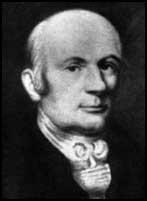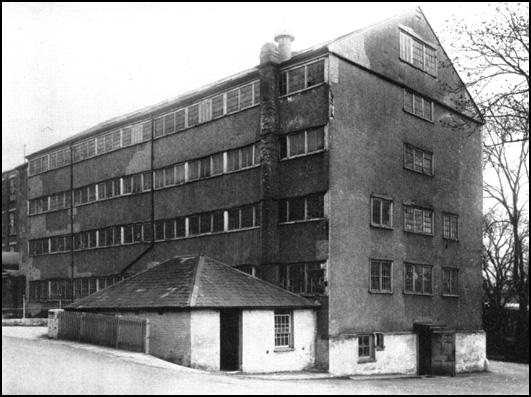George Courtauld

George Courtauld, the son of Samuel Courtauld (1720-65), was born in 1761. He entered the silk industry and after a seven-year apprenticeship with Peter Merzeau he set up his own business as a throwster in Spitalfields.
George came under the influence of the teachings of Richard Price and became a Unitarian. He developed radical political beliefs and expressed full sympathy for the American Revolutionaries in the fight against George III and his Tory government.
In 1785 Courtauld sold his business and went to America where he met and married Ruth Minton. The couple obtained a 300 acre farm in Kentucky and over the next seventeen years Ruth gave birth to eight children, of whom seven survived.
Courtauld returned to England with his family in 1793 and joined Peter Nouaille, who owned a silk mill in Sevenoaks, Kent. The two men argued over Courtauld's support for the French Revolution and in 1797 the partnership came to an end. Courtauld next found work managing a silk mill in Pebmarch in Essex.
In 1809 George Courtauld opened his own silk mill in Braintree. Courtauld specialized in crape, a hard, stiff silk, which was used for mourning clothing. Courtauld developed a silk spindle for use in his mill and patented his invention in 1814.

Courtauld mainly employed children in his mill. At first he recruited local children but in 1813 he started taking young girls from workhouses in London. Most of these came from St. Pancras and Islington. Courtauld, who much preferred employing girls than boys and although offered children of all ages usually took them from "within the age of 10 and 13". Courtauld only wanted children from what he called "well-run workhouses" and insisted that each child arrived "with a complete change of common clothing". A contract was signed with the workhouse that stated that Courtauld would be paid £5 for each child taken. Another £5 was paid after the child's first year.
The children also signed a contract with George Courtauld that bound them to the mill until the age of 21. In return Courtauld paid them between 6 and 8 shillings a week and promised to provide them with the skills needed in the silk industry. Courtauld believed that he was also training the girls for adulthood and in a letter written in 1813 claimed that his mill "will prove a nursery of respectable young women fitted for any of the humble walks of life".
In 1814 several of the apprentices ran away from Courtaulds. The girls claimed they were being badly beaten by the woman supervisor at the mill. A nasty scene took place when two men, claiming to be relatives of one of the girls, arrived at Braintree threatening revenge. Courtauld denied all knowledge of the violence that had been taking place but agreed to sack the women who was accused of beating the girls.
After this incident, Courtauld employed his daughters, Louisa, Catherine, Eliza and Sophia, to supervise the apprentices in the mill. The four sisters arranged a system of marks that reflected the work and behaviour of each girl. These marks were written on slates and exhibited in the mill close to where the girl was working. The apprentices were not allowed to talk but could sing hymns which Courtauld found "a help to industry, attention and orderly conduct."
In 1818 George's son, Samuel Courtauld, rook over the running of the silk mill, George Courtauld went to live in America where he died in 1823.
Primary Sources
(1) George Courtauld, letter to Mr. Mann (11th December, 1813)
I have 8 children coming from Islington on Tuesday next and 8 or 10 more on Thursday. I had my choice from upwards of 50 girls of different ages and accepted all but one that were within the age of 10 and thirteen. They are from a very well-conducted workhouse and I really expect and earnestly hope that by continued care and attention my establishment of apprentices will prove a nursery of respectable young women fitted for any of the humble walks of life.
(2) In a letter to Joseph Wilson, George Courtauld explained the duties of his four daughters in the Braintree Mill (24th September, 1814)
The winding, drawing and doubling floor, where the scale is fixed, should at every instance of time during working hours have one of them present that their constant eye and whole attention be given to the people of that floor in maintaining perfect silence except the singing of hymns which we find a useful relaxation and a help to industry, attention and orderly conduct.
